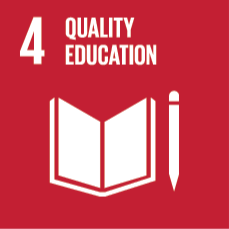Our Commitment to Meaningful Impact
At CAPTiX, we empower people and businesses to grow in a world of constant change.
Facing global challenges like climate change and new technology, we believe human adaptability drives progress. We improve skills, increase efficiency, and reduce environmental impact with smarter, faster solutions made for you.
Through constant innovation and teamwork, CAPTiX works to create lasting benefits for people, businesses, and the planet.
We welcome partnerships with organizations that share our commitment to the UN Targets below.
Contact us to explore how we can achieve these goals together.
Quality Education
By delivering immersive, accessible training that drives engagement and effectiveness across sectors. We intend to support the following targets:
4.3
By 2030, ensure equal access for all women and men to affordable and quality technical, vocational and tertiary education, including university
4.4
By 2030, substantially increase the number of youth and adults who have relevant skills, including technical and vocational skills, for employment, decent jobs and entrepreneurship
Decent Work and Economic Growth
By optimizing workflows and upskilling teams to strengthen economic resilience and job quality. We intend to support the following targets:
8.2
Achieve higher levels of economic productivity through diversification, technological upgrading and innovation, including through a focus on high-value added and labour-intensive sectors
8.3
Promote development-oriented policies that support productive activities, decent job creation, entrepreneurship, creativity and innovation, and encourage the formalization and growth of micro-, small- and medium-sized enterprises, including through access to financial services
8.5
By 2030, achieve full and productive employment and decent work for all women and men, including for young people and persons with disabilities, and equal pay for work of equal value
Industry Innovation & Infrastructure
By fostering sustainable development and technological innovation through XR and AI integration. We intend to support the following targets:
9.2
Promote inclusive and sustainable industrialization and, by 2030, significantly raise industry’s share of employment and gross domestic product, in line with national circumstances, and double its share in least developed countries
9.4
By 2030, upgrade infrastructure and retrofit industries to make them sustainable, with increased resource-use efficiency and greater adoption of clean and environmentally sound technologies and industrial processes, with all countries taking action in accordance with their respective capabilities
Reduce Inequalities
By Empowering individuals to gain new skills and access higher-value employment opportunities. We intend to support the following target:
10.2
By 2030, empower and promote the social, economic and political inclusion of all, irrespective of age, sex, disability, race, ethnicity, origin, religion or economic or other status
Ensure Sustainable Consumption and Production Patterns
By promoting best practices and quality control to reduce waste and enhance repair capabilities. We intend to support the following target:
12.5
By 2030, substantially reduce waste generation through prevention, reduction, recycling and reuse






